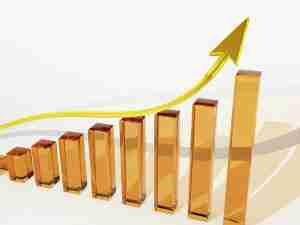Japan exports knocked by weak US shipments, hurt economic recovery
By: Reuters | Sep 18 2014 at 05:14 PM | International Trade
Japan’s exports declined in August as shipments to the United States contracted, another sign the economy is struggling to rev up after a deep slump in April-June.
A further period of lackluster exports and slack domestic demand could force the government and the Bank of Japan to find new ways to prop up the economy.
Exports fell 1.3 percent in August from a year ago, less than the median estimate for a 2.6 percent annual decline. That followed a 3.9 percent annual gain in the previous month after having fallen in June and May.
The patchy performance has dashed hopes that external demand can offset a consumer spending slump caused by an April sales tax hike to 8 percent from 5 percent, heaping pressure on policymakers to do more to spur economic growth.
“The U.S. economy is recovering, so things should not be this bad,” said Hiroshi Miyazaki, senior economist at Mitsubishi UFJ Morgan Stanley Securities.
“The data do reflect a shift in production overseas. I don’t think monetary policy easing is needed, but there are doubts about how the overall economy will perform in the third quarter.”
Japan’s economy shrank an annualized 7.1 percent in the second quarter hit by the tax hike, the biggest contraction since the 2009 global financial crisis.
Underperforming exports have been one of the weak links in the Japanese economy, which is struggling to cope with the April tax hike.
Confidence at Japanese manufacturers fell the most in nearly two years in September as a tax increase hit the economy harder than expected, a Reuters poll showed, suggesting further difficulty for the struggling recovery.
The worsening sentiment in the monthly Reuters Tankan, with only a feeble improvement forecast for December, bodes ill for the Bank of Japan’s quarterly tankan survey, which had been forecast to rebound in the third quarter.
In the latest month, exports were hit by a decline in shipments to the United States - down 4.4 percent on-year, from a 2.1 percent rise in July.
Weak exports, frailty in business confidence and a shaky outlook could raise the pressure in coming months on the BOJ to ease policy further, and complicate Abe’s decision on whether to raise the national sales tax again.
Imports fell an annual 1.5 percent in August, more than the median forecast for a 1.2 percent annual decline, as energy imports declined.
As a result, the trade deficit stood at 948.5 billion yen, less than the median estimate of 1.0289 trillion yen.
Japan’s trade balance was in deficit for the 26th month in a row, an indication that its status as an export powerhouse has faded as companies shift production offshore.
BOJ Governor Haruhiko Kuroda has repeatedly said the nation is on track to meet the central bank’s 2 percent inflation goal, but the deep economic contraction has raised questions about the outlook for growth.
A shallower rebound in the third quarter could further heighten speculation for additional BOJ stimulus, analysts say.
Exports have failed to pick up despite the yen’s decline to a six-year low, partly as many Japanese firms have shifted their production sites overseas which tempers the benefit of a softer currency. (Reuters)







